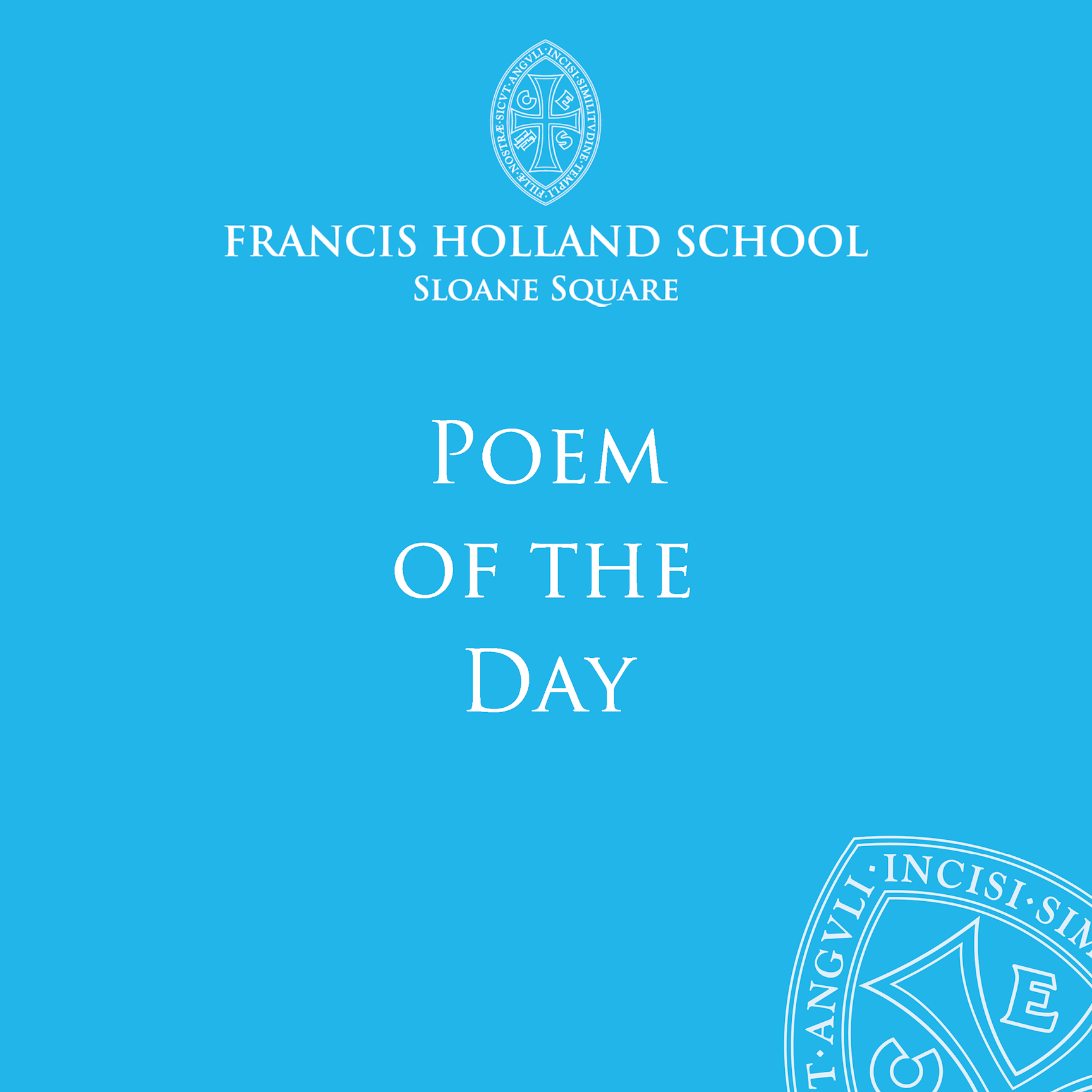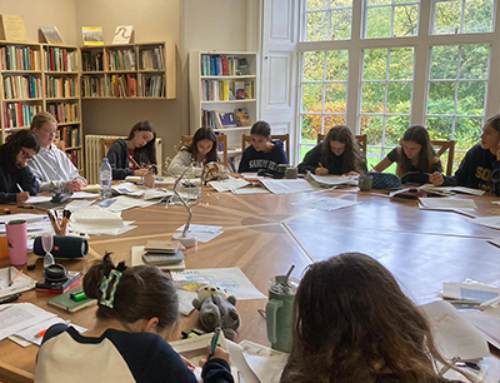Today’s poem is chosen and introduced by our Teacher of English, Ms Geussens.
It is St George’s Day, but perhaps even more importantly, 23 April is the day on which William Shakespeare was born – and died. That means, of course, that the Poem of the Day is one of his sonnets.
In this poem, Shakespeare describes a feeling we are all familiar with, and which can be hard to escape when we are stuck indoors. He feels, simply put, awful! He feels that he’s had the worst luck, that everyone is handsomer and more popular than he is, and – amazingly – that other people are more talented.
That is when the poem turns around, in what we call a volta, an essential part of every sonnet. In the middle of his self-pity, Shakespeare remembers his beloved, and in one of my favourite similes of all time, his ‘state’ – his mood, his attitude – rises like a lark, the bird that sings in the morning, all the way to the gates of heaven.
Sonnet 29 reminds me that it is normal to sometimes feel like you’re up against the world, and you’ll never quite measure up to the people you admire. Even Shakespeare couldn’t escape it. However, once we remember those who deeply love us, whether that is our partner, our family, or our friends, we can feel richer than kings.
Sonnet 29
When, in disgrace with fortune and mens eyes,
I all alone beweep my outcast state,
And trouble deaf heaven with my bootless cries,
And look upon myself and curse my fate,
Wishing me like to one more rich in hope,
Featured like him, like him with friends possessed,
Desiring this mans art and that mans scope,
With what I most enjoy contented least;
Yet in these thoughts myself almost despising,
Haply I think on thee, and then my state,
(Like to the lark at break of day arising
From sullen earth) sings hymns at heavens gate;
For thy sweet love remembered such wealth brings
That then I scorn to change my state with kings.
Those of us who are musically inclined may enjoy this version set to music by Rufus Wainwright.














